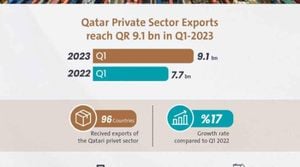Ismael 'El Mayo' Zambada, one of Mexico's most notorious drug lords, has caused ripples across the political spectrum with his recent letter, which raises serious questions about the intersection of organized crime and the ruling political party, Morena. The letter, highlighted by journalist Jorge Fernández Menéndez, allegedly elucidates the deep connections between the criminal underworld and various factions within Morena, bringing to light the persistent problem of corruption entangling politics and crime.
Fernández Menéndez elaborates on the significance of this letter, claiming it "puts on the table the relationship of organized crime with sectors of Morena, huachicol, Tamaulipas, and Sinaloa." The correspondence has reignited discussions surrounding the shadowy alliances between criminal organizations and political entities, particularly the longstanding allegations of infiltration by drug lords within government structures.
At the center of the drama are Zambada’s lawyers, Juan Pablo Penilla and Juan Manuel Delgado, both noted supporters of Morena. Penilla, who served as advisor to Américo Villarreal's government, has connections to notorious figures such as the leaders of Los Zetas, El Z 40 and El Z 42, who were involved in significant criminal endeavors, including mass killings and drug trafficking. Fernández highlights Penilla's role, recalling his association with the perpetrators of the infamous massacre at Allende, Coahuila, which resulted in dozens of deaths and hundreds of disappearances.
Adding fuel to the fire, Fernández mentions the assassination of political figures connected to this underworld. A notable case is the murder of Carlos Narváez, who was linked to customs operations during the tenure of Horacio Duarte. Narváez, presumed on the verge of being elevated within the customs system, was gunned down just days prior to the 2022 elections. His death has been theorized to have connections to another high-profile assassination: Sergio Carmona, known as the 'king of huachicol,' who was assassinated the previous year.
Carmona's entrenchment within political spheres cannot be overstated. His financial backing of campaigns has shifted, particularly aligning with Morena since 2018, showcasing the intersections of business interests and political ambitions. This alignment raises alarms about the long-standing misuse of political power for illicit gain, which echoes throughout regions like Tamaulipas and Sinaloa.
The scandal deepens with revelations surrounding the Carmona brothers, whose wealth, accumulated through illicit activities, reportedly surpasses $2 billion. According to U.S. Treasury investigations, the brothers maintained offshore accounts containing upwards of $60 million. These accounts were linked to laundering schemes involving organized crime syndicates, utilizing the customs departments to facilitate significant illegal operations.
Fernández notes, "The investigations by the U.S. Treasury involve extensive networks of customs officials collaborating with U.S. gangs to perpetrate activities like counterfeiting credit cards and importing illegal fuel.” This complex web interconnects influential figures, showing how deep-rooted corruption fuels sustained criminal operations across borders.
Recent disclosures from hacked defense documents also revealed Mexican government efforts to investigate widespread corruption within customs—highlighting specific individuals like Juan Carlos Madero Larios and others accused of substantial malfeasance. These revelations come at a time when the association between organized crime and political financing is gaining greater visibility, especially within the framework of the 2021 elections.
While Claudia Sheinbaum, another prominent figure within Morena, has publicly distanced herself from Zambada’s lawyers asserting she does not know Penilla, the political ramifications of such ties could extend far beyond individual denials. The corruption allegations spotlight the obstacles faced by Mexican authorities as they navigate the fraught intersection of organized criminal enterprises and the political elite.
This tangled narrative serves as both warning and insight, prompting discourse on the persistent influence of organized crime over Mexican politics—exemplified through Zambada's correspondence, the assassinations of key political figures, and the alleged complicity of legal advisors. The potential ramifications for Morena loom large, as the party must reckon with allegations of embattled integrity amid rising scrutiny.
Through this lens, the echoes of history resonate within the current event, illustrating the cyclical nature of governance intertwined with criminal activity. The letter from Zambada not only challenges public perception but also forces politicians and constituents alike to confront the uncomfortable reality of corruption and complicity.



